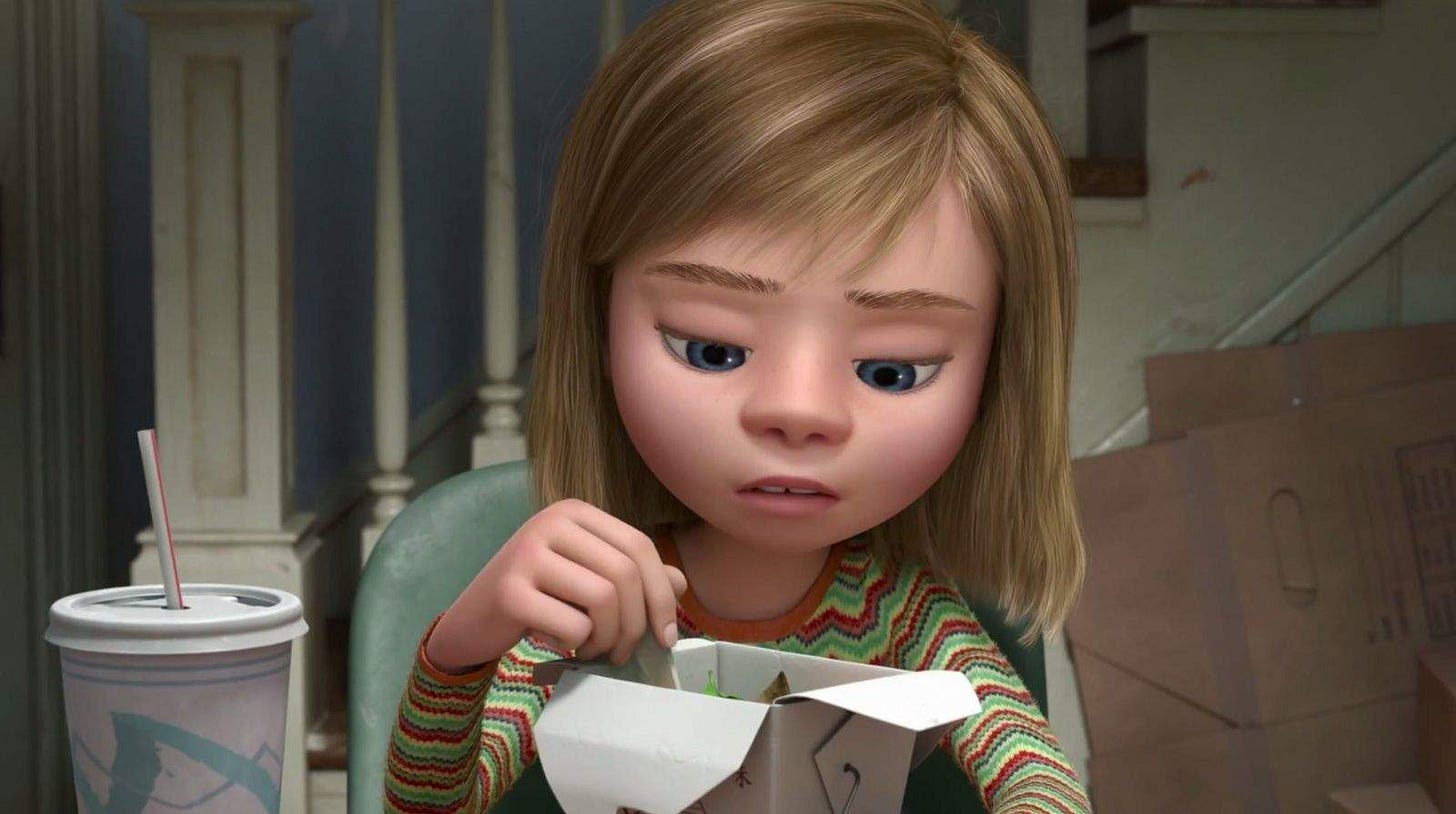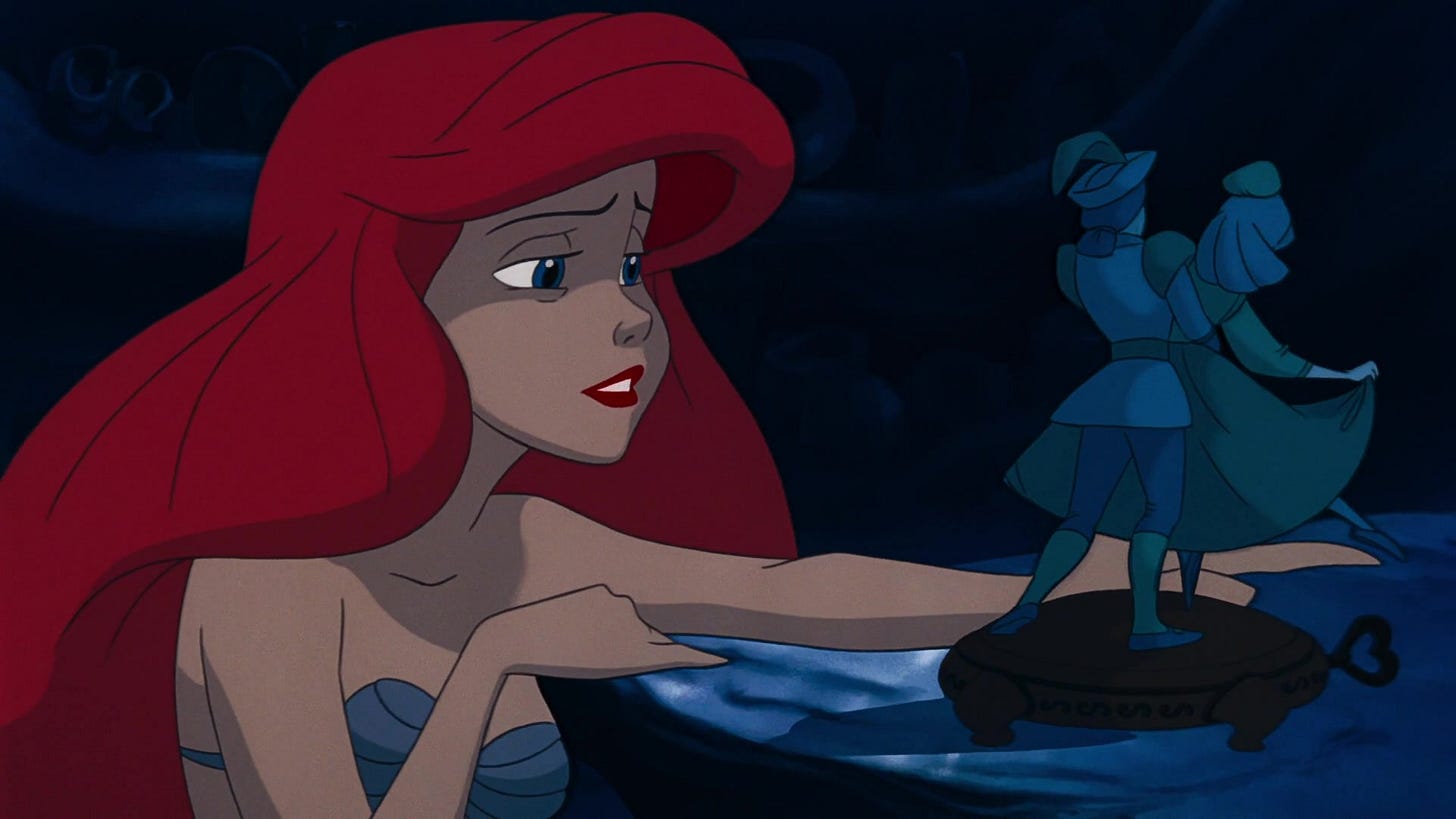Issue 5 - Part of Your World
Disney films give us more than princesses and magic. Instead, many are coming-of-age films at their finest...
Inside Out (2015) dir. Pete Docter. Walt Disney Studios Motion Pictures.
Walt Disney Studios has been in the public consciousness for over one hundred years. When they first started, the journey to make a feature-length film using hand-drawn animation techniques was laborious and painful. The result was the 1938 film Snow White and the Seven Dwarfs. Since this feat, the studio has gone on to entertain generations of children and adults.
But why am I ranting about Disney in a newsletter about coming-of-age films? Well, countless numbers of kids grew up falling in love with the iconic characters from the studio. We felt unimaginable joy when Cinderella went to the ball, and terrible grief when Mufasa fell to his death (this scene left me with emotional damage, thanks Disney).
However, the characters themselves are often experiencing a coming-of-age arc. They are usually young and at the age of puberty and facing some sort of life-changing event. For Moana, her passion for the ocean takes her on a magical journey. Riley in Inside Out (2015) moves away from her friends and hometown, causing her to rethink her identity. Domee Shi’s Turning Red (2022) is more overt about these coming-of-age themes, but these ideas are certainly not new for Disney.
A closer look
The Little Mermaid (1989) dir. Ron Clements. Walt Disney Studios Motion Pictures.
Out of all the Disney releases of the 80s and 90s, I think The Little Mermaid was the most ahead of its time. And that’s saying a lot, I used to have The Lion King on repeat when I was a kid. Viewers have more recently criticised the 1989 film for Ariel’s decision to change her body just so she can be with a man she has not even had a conversation with. However, I think this is a misunderstanding. Ariel instead represents the coming-of-age of a person who feels they do not belong. Let me explain.
For those of you not familiar with the classic story, here is a quick rundown. Ariel, a 16-year-old mermaid, is the youngest daughter of King Triton. Instead of playing the perfect child and pleasing her father, Ariel is obsessed with the human world above. When she saves suave Prince Eric from death in a shipwreck, her desire to see the human world gets the better of her. Ariel makes a deal with the terrifying yet iconic Ursula to have her tail for a pair of legs on one condition: she must give up her voice.
If we consider the narrative of a young girl seeking to rebel from her parents and find her own identity, it is not dissimilar to coming-of-age films such as Ladybird (2017) and Persepolis (2007). When we take a look at the music in the film, the themes surrounding coming-of-age become even more complex.
Composers Howard Ashman and Alan Menken are heavily responsible for Disney not being left in the dust behind other animation studios. They saw the necessary musicality of the animation style, and put a focus on the musical talent of their voice actors rather than their fame. The former was a skilled lyricist, filled with passion for making the studio a successful enterprise. While he was composing the songs for The Little Mermaid, he was diagnosed with AIDS. He hid from his co-workers at Disney that he was gay, and kept his declining health a secret until it was unconcealable. He kept working on the film, and died in 1991 during production of Beauty and the Beast.
Ariel’s first song in the film is Part of Your World, one which Ashman poured his heart into. She yearns to be part of the human realm, untouched by judgement from her family and free to be herself. Like Ashman, Ariel is constrained by strict societal expectations. In the original fairy tale by Hans Christian Andersen, she meets a tragic end by turning to seafoam. The Disney version allows Ariel to keep her body, her family and her boyfriend. So many queer people can only dream of this perfect ending.
I wonder if Howard dreamt of the same.
Back to the present
Here is a coming-of-age to keep your eye on:
Lukas Dhont’s Close promises to be a tender yet painful portrayal of the transition between friendship and love. Thirteen-year-old Belgian boys Leo and Remi have a seemingly unbreakable connection, comfortable in each other’s company and blissfully happy. As they enter the world of adolescence, their innocent relationship becomes increasingly complex.
Close will be available to stream on MUBI from 21 April.


